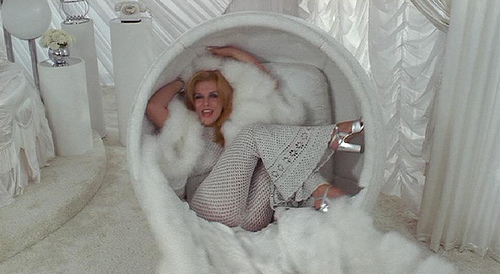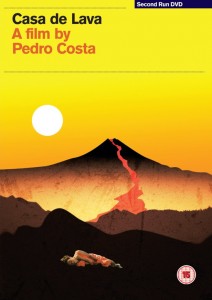From Monthly Film Bulletin, April 1975 (Vol. 42, No. 495). — J.R.

Tommy
Great Britain, 1975 Director: Ken Russell

Cert-AA. dist-Hemdale. p.c—The Robert Stigwood Organisation.
exec. p-Beryl Vertue, Christopher Stamp. /;Robert Stigwood, Ken
Russefl. assoc. p-Harcy Benn. p. manager-John Comfort. asst. d-
Jonathan Benson. sc-Ken Russell. Based on the rock opera by Pete
Townshend and the Who. addit. Material–John Entwistle, Keith Moon.
ph–Dick Bush, Ronnie Taylor. In colour. sp. ph. effects–Robin Lehman.
ed—Stuart Baird. a.d–John Clark. set dec–Paul Dufficey, Ian Whittaker.
sp. Effects–Effects Associates, Nobby Clarke,_Carygra Effects. m/songs–
“Captain Walker Didn’t Come Home”. “It’s a Bov !” “’51 is Going to be a
a Good Year”, “What About the Boy ?”, “See Me, Feel Me”, “The
Amazing Journey”, “Christmas”, “The Acid Queen”, “Do You Think
It’s All Right?”, “Cousin Kevin”, “Fiddle About”, “Sparks”, “Pinball
Wizard”, ‘Today It Rained Champagne” ,”‘There’s a_Doctor” , “Go to the
Mirror”, “Tommy Can You Hear Me !’” “Smash the Mirror”, “I’m Free”,
“Miracle Cure”, “Sensation”, “Sally Simpson”, “Welcome”, “Deceived”,
“Tommy’s Holiday Camp”, “We’re Not Gonna Take It”, “Listening to
You” by Pete Townshend and The Who [Roger Daltrey,John Entwistle,
Keith Moon, “Eyesight to the Blind” by Sonny Boy Williamson. m.d–
Pete Townshend. musicians-Elton John, Eric Clapton, Keith Moon,
John Entwistle, Ronnie Wood, Kenny Jones, Nicky Hopkins, Chris
Stainton , Fuzzy Samuels, Caleb Quayle, Mick Ralphs, GRaham Deakin,
Phil Chen, Alan Ross, Richard Bailey, Dave Clinton, Tony_Newman,
Mike Kelly, Dee Murray, Nigel Ollson, Ray Cooper, Davey_Johnstone,
Geoff Daley, Bob Efford, Ronnie Ross, Howie Casey. Read more
From the Chicago Reader (November 17, 1989). — J.R.

APARTMENT ZERO
*** (A must-see)
Directed by Martin Donovan
Written by Donovan and David Koepp
With Colin Firth, Hart Bochner, Dora Bryan, Liz Smith, Fabrizio Bentivoglio, James Telfer, Mirella D’Angelo, Juan Vitali, and Francesca d’Aloja.

Although it qualifies technically as an American movie, Martin Donovan’s ambitious, disturbing thriller Apartment Zero is one of those international hodgepodges that are somewhat disorienting almost by definition. Set in Buenos Aires, made with actors and technicians from three continents, and filmed in English by an Argentinean director who has lived mainly in Italy and England since the 70s, it has the sort of multinational sprawl that only a strong script and a forceful style could hold together. Fortunately, Apartment Zero has both script and style in spades. It may not be to everyone’s taste, but to me it’s an exciting piece of controlled cinematic delirium.
I first encountered this movie at a midnight screening at the Berlin Film Festival last February, having been guided to it by a perceptive rave in Variety by Todd McCarthy. Ever since then I’ve been wondering when and how it would eventually turn up in Chicago. It lacks most of the usual commercial calling cards (big stars, lovable nerds, genre cliches, babies, body switches, Spielberg lighting), it was passed up by the New York and Chicago film festivals, and it didn’t seem the sort of picture that Vincent Canby would like. Read more
Written for the Second Run DVD of Pedro Costa’s Casa de Lava, released in the U.K. in 2012, and developed from separate articles in the Chicago Reader, November 15, 2007, and the Portuguese collection cem mil cigarros: OS FILMES DE PEDRO COSTA, edited by Ricardo Matos Cabo, Lisboa: Orfeu Negro, 2009. — J.R.

The cinema of Pedro Costa is populated not so much by characters in the literary sense as by raw, human essences — souls, if you will. This is a trait he shares with other masters of portraiture, including Robert Bresson, Charlie Chaplin, Jacques Demy, Alexander Dovzhenko, Carl Dreyer, Kenji Mizoguchi, Yasujiro Ozu, and Jacques Tourneur. It’s not a religious predilection but rather a humanist, spiritual, and aesthetic tendency. What carries these mysterious souls, and us along with them, isn’t stories — though untold or partially told stories pervade all of Costa’s features. It’s fully realized moments, secular epiphanies.
Born in Lisbon in 1959, Costa grew up, by his own account, without much of a family. Speaking about O sangue, his first feature, he admitted that there was a personal aspect in his concentration on the incomplete family in that film “because I never really had a family. Read more





